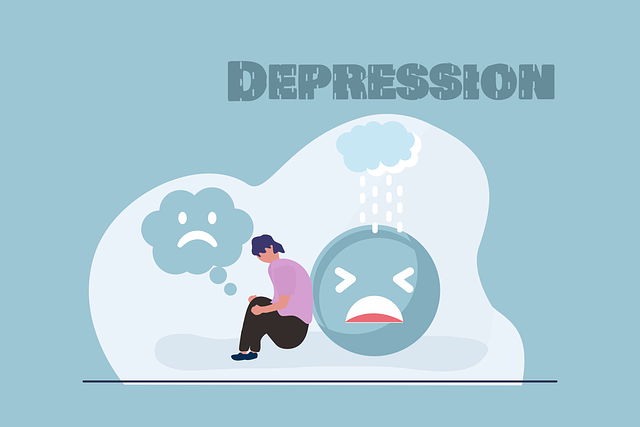Louisville struggles with mental health stigma hindering access to care and contributing to high substance abuse rates. To address this, multifaceted strategies are needed, focusing on education and awareness through programs like Mental Health Education and Stress Management Workshops. Peer support groups and community involvement reduce stigma, while policy changes ensuring equal access and confidentiality are crucial. Personal success stories from Louisville Drug Abuse-Substance Abuse Therapy highlight the impact of early intervention and effective treatment, emphasizing the importance of mental health advocacy and accessible care.
In Louisville, navigating mental illness often feels like a labyrinthine journey, exacerbated by the pervasive stigma surrounding mental health. This article delves into effective strategies to reduce the burden of this social enigma. From education campaigns that dispel myths about mental illness, to support groups fostering peer-to-peer connections, and policy changes advocating for better access to Louisville Drug Abuse-Substance Abuse Therapy, these efforts illuminate the path toward a more compassionate community. We share success stories to inspire action and celebrate progress in overcoming stigma.
- Understanding Stigma and Its Impact on Mental Health in Louisville's Community
- The Role of Education and Awareness Campaigns in Reducing Stigma
- Support Groups and Peer-to-Peer Connections: Building a Network of Understanding
- Policy and Systemic Changes: A Collective Approach to Overcoming Stigma
- Success Stories and Testimonials: Celebrating Progress and Inspiring Action
Understanding Stigma and Its Impact on Mental Health in Louisville's Community

Stigma surrounding mental health issues persists in many communities, Louisville is no exception. This pervasive stigma often prevents individuals from seeking help, leading to untreated and undiagnosed conditions. The impact is severe, with unaddressed mental health struggles potentially escalating into more critical issues like drug abuse or substance use disorders. Louisville’s community faces a unique challenge where the prevalence of substance abuse therapy is higher than average, indicating a deep-rooted need for better mental health support and understanding.
Reducing this stigma requires a multifaceted approach. Mental Health Education Programs designed to raise awareness and dispel myths can make a significant difference. Additionally, Stress Management Workshops organized for both professionals and the general public can foster empathy and encourage early intervention. By implementing these initiatives, along with effective risk management planning for mental health professionals, Louisville can create an environment where individuals feel supported and empowered to prioritize their mental well-being.
The Role of Education and Awareness Campaigns in Reducing Stigma

Education and awareness campaigns play a pivotal role in reducing the stigma surrounding mental illness. By providing accurate information about various conditions, their causes, and effective treatment options, these initiatives help dispel myths and misconceptions. Schools, community centers, and healthcare providers can collaborate to offer workshops, seminars, and interactive programs that educate both the general public and at-risk individuals.
Through such campaigns, people learn about different aspects of mental wellness, including signs of distress, available support systems, and the benefits of seeking professional help early on. In Louisville, for instance, drug abuse-substance abuse therapy centers have actively participated in crisis intervention guidance programs, contributing to a more understanding society that embraces those facing mental health challenges. Moreover, stress reduction methods and mental wellness programs integrated into educational curriculums can foster resilience and encourage open conversations about emotional well-being.
Support Groups and Peer-to-Peer Connections: Building a Network of Understanding

Support groups and peer-to-peer connections play a pivotal role in mental illness stigma reduction efforts. In Louisville, where Louisville Drug Abuse-Substance Abuse Therapy centers are prevalent, such initiatives offer individuals affected by mental health issues a safe space to share their experiences. These support groups foster an environment of understanding, empathy, and camaraderie, breaking down the barriers that often isolate those struggling with mental illness. By connecting individuals with peers who have faced similar challenges, these networks empower members to confront stigma head-on, promoting acceptance and compassion within the community.
Moreover, cultural sensitivity in mental healthcare practice is enhanced through these peer-led gatherings. Members bring diverse backgrounds, experiences, and perspectives, enriching discussions on conflict resolution techniques that address cultural nuances and biases often encountered in formal therapy settings. This holistic approach not only strengthens support but also ensures that strategies for stigma reduction are inclusive and effective, ultimately contributing to a more supportive and informed community for those dealing with mental health issues.
Policy and Systemic Changes: A Collective Approach to Overcoming Stigma

Stigma reduction efforts require a collective approach, particularly when addressing mental health issues on a societal level. Policy and systemic changes are pivotal in reshaping public perception and fostering an environment conducive to open dialogue. This involves implementing laws and guidelines that promote equal access to mental health services, ensuring confidentiality, and encouraging early intervention. By integrating evidence-based practices and Mind Over Matter principles in Louisville’s Drug Abuse-Substance Abuse Therapy programs, we can empower individuals to take charge of their mental well-being.
Self-awareness exercises and stress management techniques play a significant role in these systemic changes. Educating the community about the neurobiological basis of mental illness can help dispel myths and misconceptions. Encouraging open conversations and normalizing discussions around mental health struggles are essential steps towards reducing stigma. Through collective action, we can create a supportive network that encourages individuals to seek help without fear of judgment, ensuring better outcomes for those facing mental health challenges.
Success Stories and Testimonials: Celebrating Progress and Inspiring Action

In the realm of mental illness stigma reduction, success stories and testimonials serve as powerful tools to celebrate progress and inspire action. These narratives from individuals who have overcome challenges related to Louisville drug abuse-substance abuse therapy showcase the transformative power of specialized care and support. By sharing their journeys, they not only dispel myths but also emphasize the importance of early intervention, effective treatments, and inclusive communities in fostering recovery and enhancing well-being.
Through personal stories, individuals highlight how mental health policy analysis and advocacy have played pivotal roles in shaping supportive environments. These accounts often underscore the significance of building confidence through various therapeutic interventions, preventing burnout by prioritizing self-care, and advocating for policies that promote accessible and compassionate mental healthcare. Such success stories resonate deeply, encouraging others to take proactive steps towards better mental health and breaking down barriers associated with seeking help.
Mental illness stigma reduction is a multifaceted effort that requires education, policy changes, and community support. In Louisville, efforts like awareness campaigns, peer-to-peer connections, and policy reforms are making significant strides in fostering understanding and compassion. As evidenced by success stories and testimonials, these initiatives not only help individuals seeking Louisville drug abuse-substance abuse therapy but also create a more inclusive and supportive environment for everyone. By continuing to build on these strategies, the community can further reduce stigma and improve mental health outcomes.














